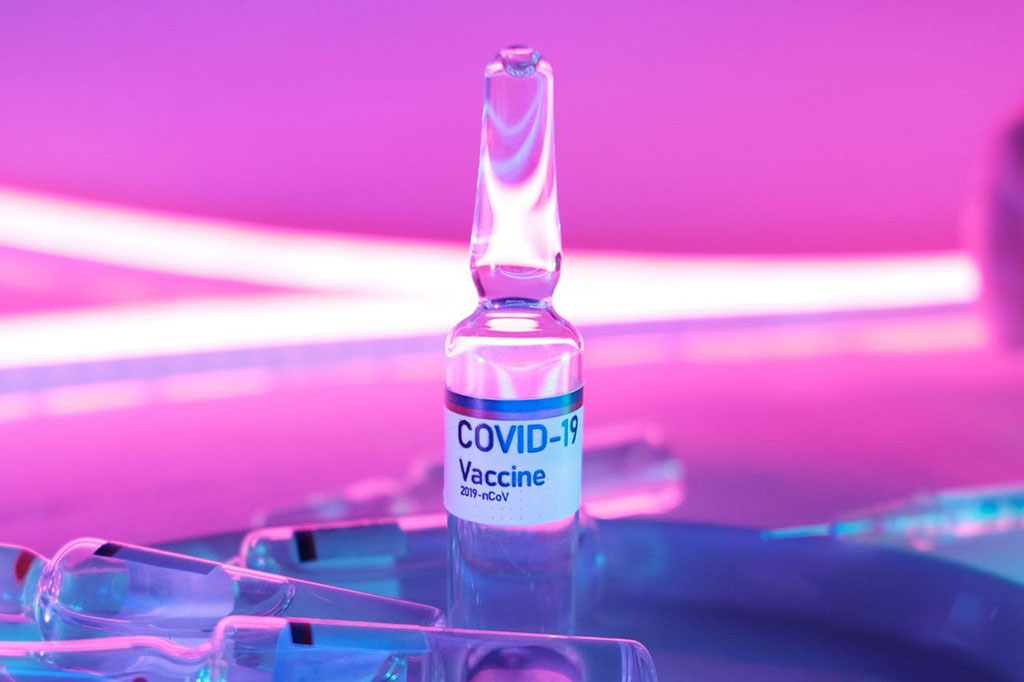Study Reveals Varying Antibody Responses and Adverse Reactions Among Recipients of Different COVID-19 Vaccines
|
By HospiMedica International staff writers Posted on 29 Sep 2021 |

A new study revealing how antibodies against the SARS-CoV-2 virus can vary among recipients of different COVID-19 vaccines was presented at the 2021 AACC Annual Scientific Meeting & Clinical Lab Expo.
The study by researchers at the Dartmouth-Hitchcock Medical Center (Lebanon, NH, USA) shows how antibody responses and adverse reactions can differ in recipients of the Moderna and Pfizer COVID-19 vaccines.
Vaccines have become essential tools in the fight against COVID-19, but it’s still unclear exactly how the antibodies generated from different vaccines change or wane over time. Meanwhile, the spread of the Delta variant and the rising number of breakthrough infections have both highlighted the importance of characterizing antibodies against SARS-CoV-2 in both vaccinated and unvaccinated individuals. Knowing more about antibody patterns could also help clinicians assess individuals’ immunity to SARS-CoV-2, in addition to helping with the diagnosis and management of patients.
In the new study, the researchers collected blood samples of 78 individuals who received the Moderna vaccine and 70 individuals who received the Pfizer vaccine, before the second vaccine dose, 14 days after the second dose, and 30 days after. The study participants also took a survey where they rated the severity of adverse effects and symptoms after vaccination. Overall, individuals who received the Moderna vaccine showed a higher antibody response against the viral spike protein compared with those who received the Pfizer vaccine (4,244 U/mL vs. 1,986 U/mL 30 days after dose two) and also reported stronger side effects. However, the researchers have cautioned that these differences could arise from confounding variables such as the higher mRNA dosage in the Moderna vaccine. The team also found that antibody responses had dropped 30 days after the second dose, regardless of the vaccine given.
“We can’t claim Moderna is better than Pfizer based on these results … but it does seem there is more of a response from Moderna at least in terms of the assay that we used,” said Michael Kelliher, PhD, of Dartmouth-Hitchcock Medical Center, who led the research. “How that correlates with the total adaptive immune response is unknown, and there’s still a decent amount of research that needs to be done on this topic.”
Related Links:
Dartmouth-Hitchcock Medical Center
Latest AACC 2021 News
Channels
Critical Care
view channel
Magnetically Guided Microrobots to Enable Targeted Drug Delivery
Stroke affects 12 million people globally each year, often causing death or lasting disability. Current treatment relies on systemic administration of clot-dissolving drugs, which circulate throughout... Read more
Smart Nanomaterials Detect and Treat Traumatic Brain Injuries Simultaneously
Traumatic brain injury (TBI) continues to leave millions with long-term disabilities every year. After a sudden impact from a fall, collision, or accident, the brain undergoes inflammation, oxidative stress,... Read more
Earlier Blood Transfusion Could Reduce Heart Failure and Arrhythmia in Heart Disease Patients
Blood loss during or after surgery can place significant stress on people with heart disease, increasing the risk of dangerous complications. Transfusions are often delayed until hemoglobin levels fall... Read moreSurgical Techniques
view channel
New Study Findings Could Halve Number of Stent Procedures
When a coronary artery becomes acutely blocked during a heart attack, opening it immediately is essential to prevent irreversible damage. However, many patients also have other narrowed vessels that appear... Read more
Breakthrough Surgical Device Redefines Hip Arthroscopy
Hip arthroscopy has surged in popularity, yet surgeons still face major mechanical constraints when navigating deep joint spaces through traditional cannulas. Limited tool mobility and the need for an... Read morePatient Care
view channel
Revolutionary Automatic IV-Line Flushing Device to Enhance Infusion Care
More than 80% of in-hospital patients receive intravenous (IV) therapy. Every dose of IV medicine delivered in a small volume (<250 mL) infusion bag should be followed by subsequent flushing to ensure... Read more
VR Training Tool Combats Contamination of Portable Medical Equipment
Healthcare-associated infections (HAIs) impact one in every 31 patients, cause nearly 100,000 deaths each year, and cost USD 28.4 billion in direct medical expenses. Notably, up to 75% of these infections... Read more
Portable Biosensor Platform to Reduce Hospital-Acquired Infections
Approximately 4 million patients in the European Union acquire healthcare-associated infections (HAIs) or nosocomial infections each year, with around 37,000 deaths directly resulting from these infections,... Read moreFirst-Of-Its-Kind Portable Germicidal Light Technology Disinfects High-Touch Clinical Surfaces in Seconds
Reducing healthcare-acquired infections (HAIs) remains a pressing issue within global healthcare systems. In the United States alone, 1.7 million patients contract HAIs annually, leading to approximately... Read moreHealth IT
view channel
EMR-Based Tool Predicts Graft Failure After Kidney Transplant
Kidney transplantation offers patients with end-stage kidney disease longer survival and better quality of life than dialysis, yet graft failure remains a major challenge. Although a successful transplant... Read more
Printable Molecule-Selective Nanoparticles Enable Mass Production of Wearable Biosensors
The future of medicine is likely to focus on the personalization of healthcare—understanding exactly what an individual requires and delivering the appropriate combination of nutrients, metabolites, and... Read moreBusiness
view channel
Philips and Masimo Partner to Advance Patient Monitoring Measurement Technologies
Royal Philips (Amsterdam, Netherlands) and Masimo (Irvine, California, USA) have renewed their multi-year strategic collaboration, combining Philips’ expertise in patient monitoring with Masimo’s noninvasive... Read more
B. Braun Acquires Digital Microsurgery Company True Digital Surgery
The high-end microsurgery market in neurosurgery, spine, and ENT is undergoing a significant transformation. Traditional analog microscopes are giving way to digital exoscopes, which provide improved visualization,... Read more
CMEF 2025 to Promote Holistic and High-Quality Development of Medical and Health Industry
The 92nd China International Medical Equipment Fair (CMEF 2025) Autumn Exhibition is scheduled to be held from September 26 to 29 at the China Import and Export Fair Complex (Canton Fair Complex) in Guangzhou.... Read more

















